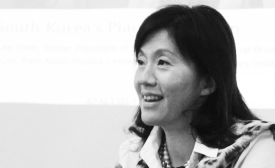korean wave

A special interview with former president of South Korea's Arirang TV.
Ask someone in Southeast Asia what comes to mind when you mention "Korea," and the answer is more than likely to be the "Korean Wave." (...) The first ladies of the ASEAN member nations got a look at the place where the wave originated during this week's Korea-ASEAN Summit.
Helweena Sadorra is a self-acknowledged fanatic of "Hallyu," or the Korean Wave. So when she landed a job at the Korean Cultural Center in Manila, she had high hopes of promoting active exchanges between South Korea and her home country... She laments that culture has become business with big revenues, and that fresh ideas, including her own, will not see the light unless they add to the money flow.
As South Korea and the United States mark the 130th anniversary of establishing their diplomatic relations this year, South Korea plans to stage a month-long campaign to burnish its image among the American people, a related government agency said Sunday.
The "Korean Wave," known as "hallyu," began when the MBC TV soap opera "What is Love?" became a sensation in China after being first broadcast on the state-run CCTV channel in 1996. The Chinese audience response to "Daejanggeum (Jewel in the Palace)," a Korean costume drama starring Lee Young-ae and shown in the country in 2005, was also explosive.
K-pop is part of a broader trend known as the Korean Wave and called “hallyu” in Korean. The Taiwanese were among the first to notice the invasion of Korean soap operas in their television programming in the late 1990s and gave the phenomenon its name. Until then, the term had referred to the cold winds blowing down from the Korean Peninsula.







